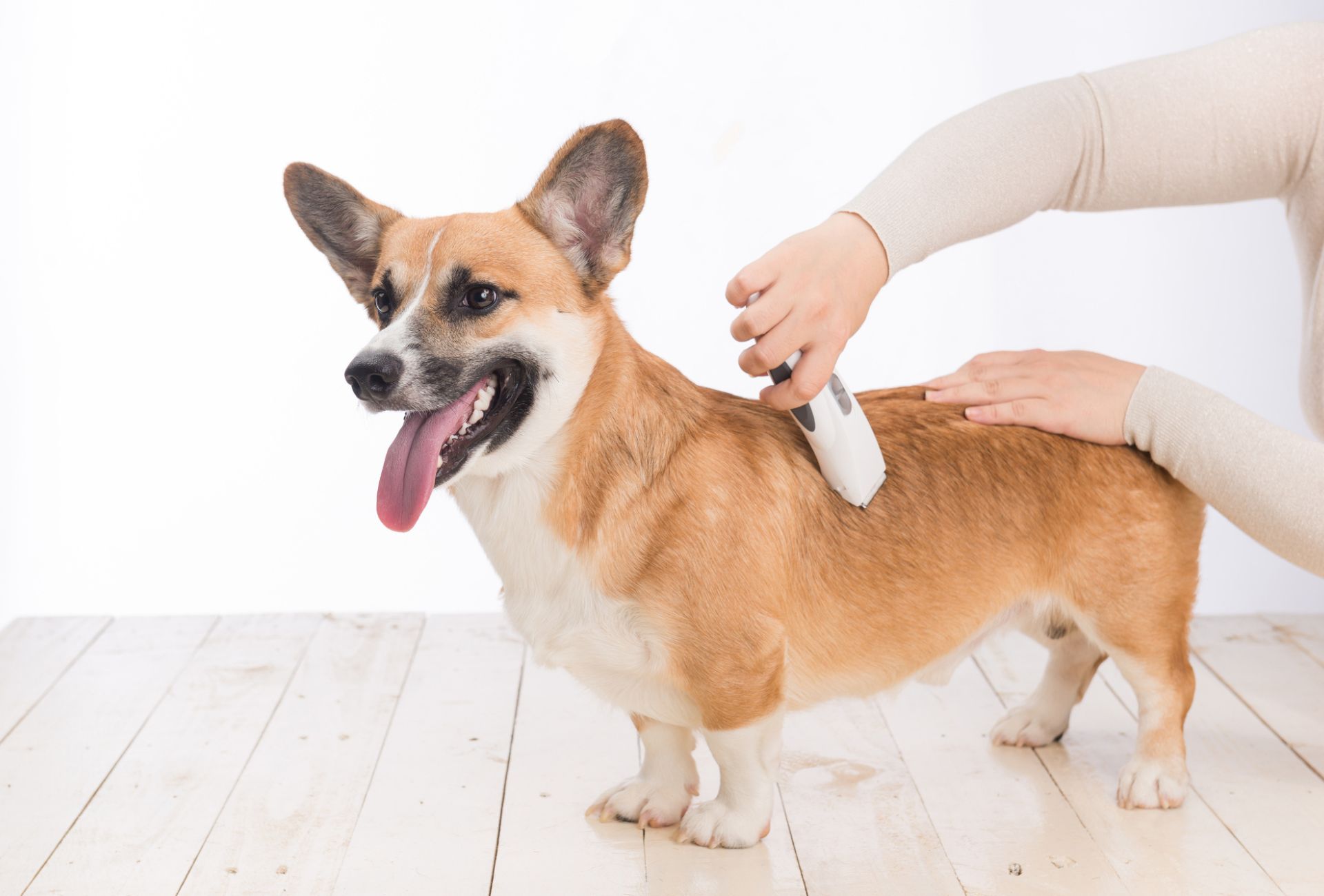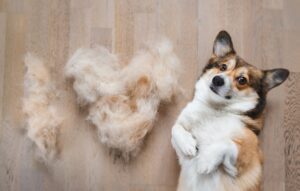Shaving your Corgi can seem like a smart way to keep them cool in the summer months, but it can also be a risky decision. Before you go ahead and take out the clippers, it’s important to understand the potential risks and disadvantages of shaving your pup.
In this article, we’ll explore the importance of proper grooming, discuss some of the potential dangers of shaving, and look at the pros and cons of the decision. We’ll also provide some helpful tips on how to keep your corgi comfortable in the summer months without having to shave them.
Table of Contents
Overview
While it may be tempting to alter a Corgi’s coat, it’s important to consider the potential consequences before making any decisions.
Corgis have a double coat that provides insulation and regulates their body temperature. Shaving it exposes their skin to harmful UV rays and can put them at a higher risk for heatstroke. It can also cause discomfort and hair follicle damage, leading to improper hair growth.
Alternative options to keep a corgi cool in the summer include cool treats, shade, and exercise during cooler times of the day. Additionally, proper coat maintenance is important to prevent matting and manage shedding. For breeds with long coats, a sanitary trim may be necessary, but shaving the body hair is not recommended.
Climate considerations should also be taken into account and the temperature of the ground should be checked before any outdoor activities.
Risks and Disadvantages
You may think shearing your pup would be a swell plan, however, it can have some serious consequences that should be taken into consideration.
Shaving a corgi’s coat exposes their skin to harmful UV rays, removes their natural insulation, and puts them at a higher risk for heatstroke. It can also lead to skin damage, discomfort, and stress, as well as hair follicle damage and improper hair growth.
Therefore, it’s important to consider the risks associated with shaving corgis before you decide to do so. Not only does it remove their natural insulation, but it can also cause them discomfort and stress. Additionally, it can lead to hair follicle damage and improper hair growth.
All of these risks should be taken into consideration before you decide to shave your pup.
Grooming and Shedding
Keeping your pup’s coat healthy and manageable doesn’t have to mean shaving it off; regular brushing and sanitary trims can help to keep your pup cool and comfortable during the summer months.
Brushing techniques, such as using a pin brush, will help to reduce matting and remove dirt, debris, and loose hair. Depending on the breed, the frequency of brushing will vary, but in general, brushing should be done at least once a week.
Professional grooming can also help to reduce shedding, as skilled groomers can thin out the coat and reduce the amount of fur that needs to be brushed. Shedding tools, such as a deshedding brush, can also help to reduce the amount of loose fur in the environment.
If your pup has a long coat, it may be necessary to get a sanitary trim to reduce the fur and keep them cool.
Overall, regular grooming and shedding tools can help to reduce the amount of fur in the environment and keep your pup comfortable during the summer months.
Cooling Tips
To beat the heat, try offering your pup cool treats, providing plenty of shade, and exercising during cooler times of the day.
Cooling treats can help lower your pup’s body temperature, while providing plenty of shade options can protect them from the sun’s harmful rays.
Exercise during cooler times of the day, such as early morning or evening, is also beneficial, as it helps your pup stay active without having to overheat.
Additionally, when taking them out for a walk, be sure to check the temperature of the ground to protect their sensitive paw pads.
These simple tips can help keep your pup safe and comfortable during the summer months.
Community Opinions
The community has shared a variety of opinions on shaving corgis, with some claiming it improved their pup’s quality of life and others expressing concern.
From grooming preferences to personal experiences, many different factors play a role in the decision to shave a corgi. Here are a few things to consider when making the choice:
- Veterinary advice: Always consult with a veterinarian before shaving a corgi, as they can provide guidance on the best course of action for your pup’s health and comfort.
- Breed specific considerations: Double-coated breeds like corgis rely on their coat for insulation and temperature regulation, so shaving should be a last resort.
- Alternative cooling methods: Check the temperature of the ground before walks, provide cool treats and shade, and exercise your pup during cooler times of the day.
- Grooming preferences: Long-haired corgis may require sanitary trims, but shaving their body hair is not recommended.
What to Do if Your Corgi Accidentally Gets a Shave?
If your corgi accidentally gets a shave, there are a few steps you can take to help the situation. First, it’s important to find out how your corgi ended up being shaved. If it was done by a professional groomer, speak with them to understand what happened. Next, take precautions to ensure your corgi’s coat grows back properly.
Regularly brush your corgi’s fur to stimulate hair growth and maintain a healthy coat. It’s worth noting that corgis have a double coat, so shaving them may not be recommended unless there is a medical reason.
In any case, be patient as it can take a long time for your corgi’s fur to grow back fully. In the meantime, it’s crucial to take special care of your corgi to protect them from sunburn, as their shaved skin will be exposed to harmful UV rays. Consider keeping your corgi from sunbathing or using pet-safe sunscreen until their fur grows back.
Does Corgi Hair Regrow?
Yes, corgi hair does regrow. If you decide to trim or shave your corgi’s fur, it will eventually grow back. However, the regrowth process can take several months before you see the full results. Corgis have a double coat which consists of a weatherproof outer coat and a dense, insulating undercoat.
This double coat protects them from the elements, but it also means that their hair growth can be slow. Additionally, the time it takes for corgi hair to grow back can also depend on factors such as the individual dog’s genetics and overall health. To promote healthy hair growth, it’s important to provide your corgi with proper nutrition and grooming practices.
Regular brushing helps to stimulate the hair follicles and remove any loose fur. Ensuring that your corgi is getting a balanced diet with the right nutrients can also support healthy hair growth. Patience is key when waiting for your corgi’s hair to regrow, but with proper care and time, their fur will eventually grow back.
Conclusion
At the end of the day, it’s up to you and your corgi to decide if shaving is the right choice. If you do decide to go for it, make sure you do your research and approach it with caution.


